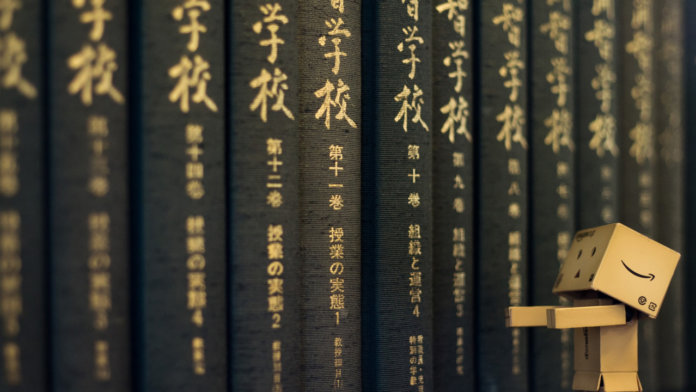In the Novels series, I get you started reading the first few paragraphs of classic Chinese fiction. If you like the beginning, you can buy the book and keep reading.
Super challenge time: this is the longest and most difficult read I’ve ever posted. Long, because I wanted to put up the entire first chapter. Difficult, because… well, I explain below. Wang Shuo has been called “China’s Kerouac”, I might lean more towards “China’s Bukowski”, and as such, this piece is not appropriate for children. There is some swearing and (very) mild sexual content – you have been warned.
Wang Shuo (王朔) is the bad boy of contemporary Chinese writers, a real controversial figure, and his work, which centers around the dark underbelly of Beijing in the 1970s and 80s, spawned its own genre of “hooligan” fiction. This isn’t the organized, moneyed mob fiction of Hong Kong, this is the small-scale thievery that reflects urban life on the mainland right after the Cultural Revolution, when the country just started opening up to international trade and society was a mess. Wang Shuo’s plots are so ugly, dark and brutal that he has been called a “spiritual pollutant” by the powers that be.
This is the complete first chapter of his book Hot and Cold, Measure for Measure, or 《一半是火焰,一半是海水》. The book contains several short novellas, but the namesake work is only around 90 pages long in total. I’m just about to finish reading it. The plot is horrendously depressing: the story of a thug who casually seduces a young high school girl with a bright future, breaks her down with his callousness until she becomes a prostitute and eventually kills herself, which sets off another chain of events. The extremely relatable realism with which Wang Shuo describes her destruction will have any woman who has ever been involved with a bad-news boyfriend cringing.
This chapter sets up the rest of the book in two main scenes: One, we meet the protagonist as he is in the middle of a scam he often runs. I’m going to explain the nature of the scam here because it’s confusing unless you spent time in China twenty years ago. Basically, the protagonist works with a gang that includes a friend of his (named 方方) and a few prostitutes (mainly one lady named 亚红). During this time in China, it was very common for prostitutes to work in and around hotels, they would push their cards under the door of hotel rooms, or cold-call the room to ask if services were required. Prostitution was illegal, but this still happened all the time. The protagonist and his friend wait until one of the prostitutes in the gang have landed a client. Then complicit hotel staff (named 卫宁) calls the gang, who burst into the room dressed like policemen and demand money as a “fine” from the hotel guest, and take the prostitute out as if they are arresting her. So this is where the book starts, with a phone call from a corrupt staff member at the hotel’s front desk to the gangsters, telling them which rooms the prostitutes are in with their clients.
In the second half of the chapter, the protagonist goes about the next day of his life doing some errands, and eventually meets and has a conversation with this girl whose life he will later ruin. She is spunky but naive, daring and precocious in the way that young people can be when they think they can handle themselves, but haven’t yet encountered real danger or darkness in their lives.
Some language stuff
Linguistically speaking, this is one of the hardest Chinese books I’ve ever read, because it’s full of underworld colloquialisms, and like a lot of great fiction, some of the things that happen aren’t clearly spelled out, they’re only suggested and you have to read between the lines. This chapter isn’t too bad, but subsequent chapters are pretty heavy on that stuff. I’m going to explain some of the slang used here that isn’t in the dictionary.
First, though, a couple of proper nouns: 白茹 is a brand of car, the old Chinese name for a Peugeot. Peugeot’s official Chinese name is 标致, but the cars were being imported into China probably before the company released an official Chinese name for them, so since 白茹 kind of sounds like “Peugeot”, this is probably just the Chinese-ified brand name given by locals. Happened with quite a few brands back then. 燕都 is the name of a hotel.
野鸽 yě gē – 鸽 means “dove”, but here it is slang for “prostitute”. 野, as you probably know from the word 野生, means “wild” or “untamed”. 野鸽 refers to a prostitute that is not working for the gang. In the first paragraph, 野 is used by itself, this is what it’s referring to.
小子 xiǎo zi – This is a derogatory way to refer to someone. It translates to something like, “little shit”.
他妈 tā mā – Usually 他妈的, the swear word “fuck” or “fucking”, but not referring to the sexual act itself, just used for emphasis, as in “What the fuck are you doing here?”
没劲 méi jìn – This usually means “no energy”, but in this case, it means “uninteresting” or “dull”.
倒霉蛋 dǎo méi dàn – “Unfortunate guy”, in this case probably better translated as “sucker”, as it’s referring to people who were scammed by this gang.
三联单 sān lián dān – An invoice that has three copies (one of those old white / pink / yellow carbon-copied invoices). In this chapter, the protagonist gets one from a medical clinic, and it is not made clear here what is being done with it, except that it’s clearly being used in some kind of dishonest dealing.
四胜三和五负 sì shèng sān hé wǔ fù – This phrase is being used in relation to a game of Go. Literally: “To win four (games), tie three, and lose five”. Here just means “to win a few and lose a few”.
小毛头 xiǎo máo tou – “Little boy”, used as an insult here.
丫头 yā tou – “Girl”, usually with overtones of naivety, in this case used insultingly / dismissively.
凑人 còu rén – A casual phrase meaning “to get some people together” for a party or activity.
来劲 lái jìn – To be annoying, to pester or hassle someone.
《一半是火焰,一半是海水》第一章
“喂,两对都进房了。房间号927、1208,还有一只野的,进了1713.”
“知道了。”
我放下电话,马上穿上西服外套,提起书包,招呼正在看电视的方方,三步并作两步跑下楼。我那辆花四千元买来的旧“白茹”车停在街角便道上。我们坐进车里,把汽车迅速地开上马路,直驶远处灯火辉煌的“燕都”大饭店。在饭店旁边的一条林荫道上,我招手停在一溜轿车的后边,下了车“乒乓”关好门,快步加入一群刚从一辆大旅行车下来的日本游客中间,走进“燕都”饭店富丽堂皇的大厅。彬彬有礼地站在总服务台里的卫宁不易察觉地给我们使个眼声:一切正常。我和方方走进盥洗室,打开皮包,拿出两套警服换上,走出盥洗室,沿安全楼梯爬上去。爬到第九层,我们都是气喘吁吁,待呼吸均匀了,我们走向服务台,坐着的服务员抬头诧异地看我们。
“我们是公安局的,请开927房间。”
服务员顺从地拎起一串钥匙领着我们走向长廊尽头的一间客房。“里边有客人。”服务员看到门上挂的“请勿打扰”的小牌,回头对我说。
“知道,打开锁。”我命令道。
服务员钮开锁,站在一旁。
“你回去吧。”方方粗鲁地挥手避开服务员。
服务员消逝在走廊的另一端,我和方方立即开门冲了进去……我和方方带着亚红出来,皮包里塞着几千崭新的钞票,神情严肃地走服务台进了电梯间,方方和亚红忍不住笑起来。
“你们笑什么,真他妈没劲。”我说着也忍不住笑了,对亚红说:“你在楼下酒吧等会儿,我们还得上去收拾12层那小子。”我们把电梯开到底层,让亚红出去,又开上12层。
十五分钟后,我们换下警服带着另一个姑娘在酒吧找到亚红,一起喝了杯酒,亚红挽着方方先出去。我给总服务台的卫宁打了电话,告诉他事已办完,十七层那只野鸽让她舒舒服服睡一宿,早晨报警。我挽着另一个姑娘坦然走出饭店。方方已经把“白茹”发动了,我们一上车就开走了。
早晨,我被电话铃吵醒,睡在我旁边的亚红接了电话,告诉我,卫宁说那两个受到我们讹诈的倒霉蛋已经结了房钱走了,那只野鸽也被在大门等着的警察塞上车抓走了。亚红翻身又睡了。我却睡不着,一支接一支地抽起烟。阳光从厚重的窗帘后倾泄出来,我轻轻走到窗前,从窗帘缝隙看了会儿外面车水马龙,阳光明媚的街道,把窗帘拉严。我不喜欢晴朗的早晨,看到成千上万的人兴冲冲地去上班、上学,我就感到形孤影单。白天我没有什么事可干,也没什么人等我,我的朋友们都在睡觉。我又抽了五支烟,看了看日历,然后穿衣服,洗脸刷牙,走出我住的这套公寓。我走过街角停放的“自茹”车,径直走向公共汽车站。尽管上班高峰已过,车内还是十分拥挤。一个坐着的中年男人下车,我刚要坐下,看到一个抱小孩的年轻妇女,便呼招她过来。
“谢谢。” 年轻妇女坐下后,又逗弄着小孩说:”谢谢叔叔。”
“谢谢叔叔。”
我冲小孩笑笑,小孩从衣兜里掏出一块彩纸包装的巧克力,剥开纸刚要往嘴里填,看我瞅着他,举起巧克力给我。
“不要,叔叔不吃。”
“吃吧,没事。”
“真的不吃,叔叔要下车了。”
我挤下车,沿街走了一站,到单位医务室要了张”三联单“,打电话约了一肝不太好的朋友去医院替我抽了一管血。又在商业区的两个储蓄所把我昨晚挣的那笔钱分别用我去世父母的名字存了进去,然后去邮局给一个交钱即可注册入学,不须考试的函授大学汇了报名款和一年的学费。我报的专业是法律。办完这些事,我到一家人不太多的豪华餐厅吃午饭。这家餐厅菜做的十分讲究,我看着漂亮的图案喝了不少红酒,又吃了几个浇了巧克力汁的冰淇淋,下午才走出餐厅,在报亭买当天所有的日报和晚报,坐在电报局等长途电话的排椅上细细测览。黄昏时我给家里打了个电话,方方接的。我们聊了会儿,他正在和卫宁下围棋,卫宁一早前来了,他们下了一天棋,他四胜三和五负,晚上准备凑人撞麻将。我告诉他我晚点回去,就挂了电话。
暮春时节,树木草地都绿遍了,花丛怒放。我走进一个举办晚间音乐会的公园,在音乐亭前等退票。一个老人送了我一张,我又转送给一对只有一张票的青年伴侣,坚决不要他们加倍的票款。在高大、油漆剥落的廊柱间,我看到一美丽少女坐以汉白玉石台上看书,悬在空中的两条长腿互相勾着脚,一翘一翘。她一手棒书,一手从放在身旁的一个袋袋中抓瓜子磕,吐出的皮儿拢成一堆,嘴里哼着歌,间或翻一页书,悠闲自在,楚楚动人。我悄悄走到她身后,踮脚看那本使她入迷的书。是一本很深奥的文艺理论著作,我一目十行地看了一会儿,索然无味,正要转身走开,忽听女孩说:
“看不懂吧。”她仰起脸,笑吟吟地望着我。
我脸红了,感到不知所措,因为我还会脸红。片刻,我镇静下来,说:”就是学生,这会儿在公司看书也有点装模作样。”“我在这儿坐了一下午了,你瞧,我看了多少。”
她快速地把看过一页数捻了一遍,我捏捏那厚厚的一迭,联想到书的内容,怀疑地问:”你看这么快?”
“我也看不懂呗,就看得快。”
我们都笑了。”不看了。” 女孩把书撂到一旁。“你有事吗”她问我。
“没有。” 我说:”没人约我。”
“聊聊?”
“聊聊。”
我在她旁边坐,她把瓜子袋推给我。我不大会磕瓜子,磕得皮瓤唾液一塌糊涂。
“瞧我。” 女孩示范性地磕了一个瓜子,洁白的贝齿一闪,我下意识地闭紧自己被烟熏得黑黄的牙齿。女孩倒没注意,晃悠着腿四处张望。“你是哪个学校的”我注意到她里面毛衣上别着一枚校徽。女孩龇齿咬着瓜子看着我笑起来。
“这就叫’套瓷’吧。” 女孩说:”下边你该说自己是哪个学校的,我们两校挨得如何近,没准天天能碰见……”
“你看我象学生吗?” 我说:”我是劳改释放犯,现在还靠敲诈勒索为生。”
“我才不管你是什么呢。” 女孩笑着瞅着自己的脚尖,似乎那儿有什么好玩可笑的,”你是什么我都无所谓。”
我半天没说话,女孩也没说话,只是美滋滋地看着天边夕阳消逝后迅即黯淡下来,却又不失瑰丽的云彩:“那块云象马克思、那块象海盗,象吗,你说象吗”
“你多大了?” 女孩转过头看我,仔仔细细打量了我一遍:”你,过去没怎么跟女孩接触过吧。”
“没有。” 我面不改声色心不跳地骗她。
“我早看出来了,小男孩!刚才我看书时就看见你远远地,想过来搭讪又胆怯,怕我臊你一顿是不是?”
“我和一百多个女的睡过觉。”
女孩放声笑起来,笑得那么肆无忌惮,那么开心。
“你笑起来,” 我说:”跟个傻丫头似的。”
女孩一下不笑了,悻悻地白了我一眼:”我不说你,你也别说我了。实话告诉你,我已经谈了一年多恋爱了。”女孩又笑了,有几分得意。
“是你的傻冒同学吧?”
“他才不傻呢,是学生会干部。”
“那还不傻傻得已经没法练了。”
“哼,你这种只被爸爸妈妈吻过的小毛头也配说他。”
“我要是他,就敢跟你睡觉。” 我微笑地说:”他敢吗?”
尽管天色已经很暗了,我也察觉得出女孩的脸排红了:”他很尊重我。”
我哧笑:”嘁,尊重,别说了,咱甭说了。你也别装傻了。”
女孩闷了半天没吭声。我吹起口哨,叼起一支烟,把烟盒递给她,她摇摇头。
“又完了不是?” 我取笑她,”敢在光天化日之下看书,不会抽烟,时髦半截。”
“你别来劲。” 女孩不服地说,”给我一支!”
我把嘴上的烟给她,她抽了一口,”呼”地全吹了出去。我伸胳膊搭在她肩上,她哆嗦了一下,并没拒绝。我把她搂过来,她近在咫尺地看看我,拔拉掉我的胳膊,强笑着说:
“我有点儿信你和一百多个女人睡过觉了。”
“干吗有点信,就应该信。知道我外号叫什么吗?老枪!” 我听到完完全全收拾书的声音,恶意地笑着说:“我叫你害怕了。”
“才没有呢。” 女孩站起来:“我只是该走了。”
“敢告诉我你叫什么,住哪儿吗?”
女孩跳下石台,亮晶晶的眼睛在黑暗中闪烁,笑着说:”啊哈!我还以为你能始终不同凡响,闹了半天,也落了俗套。”
“好,我俗。你走吧。哎,” 我叫住她:”咱们要是再见了,就得算朋友了吧?”
“算朋友。” 女孩笑着走了。
我笑眯眯地在石台上坐了一会儿,也跳下石台走了。




